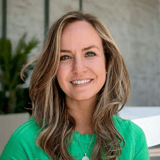Sarah Fathallah
Social Designer and Researcher
Sarah Fathallah is a Moroccan social designer and researcher, who specializes in applying participatory and human-centered design to local and global development. She has worked on projects of all sizes with non-profits, governments, and social enterprises, on topics ranging from civil and human rights, to healthcare and education, financial inclusion and consumer protection, and media development. Her clients have included the World Bank, the International Rescue Committee, Open Society Foundations, and Population Services International, to name a few. Her design work has been honored by the Core77 Design Awards, the International Design Excellence Awards (IDEA), ONE Prize, and the GSMA mWomen Design Challenge.
In her spare time, you will find Sarah volunteering as a teacher, a translator, or a crisis mapper. Most recently, she co-founded Design Gigs for Good, a job board listing opportunities at the intersection of design and social impact. Sarah is a graduate of Sciences Po Paris, where she studied International Business and Middle Eastern and Mediterranean Affairs. She also studied design innovation at the Paris Est d.school, User Experience design at General Assembly, and participatory design at MIT.
Rosenverse talks by Sarah:

" Resistance to new ideas is sometimes less about the idea’s value and more about the fears and insecurities it reveals in the listener. "
Beyond insights: Rethinking the role of researchers as stewards of organizational wisdom
March 13, 2025

" Participation is one way to minimize loss of control and allow people to exercise their agency and autonomy. "
A Typology of Participation in Participatory Research
March 28, 2023

" Trauma is a response to anything that's overwhelming—too much, too fast, too soon, or too long coupled with a lack of protection or support. "
Trauma-informed Research: A Panel Discussion
October 7, 2021

" We structured the research around helping them fill out their housing application at the same time, so we were mindful of their time and they would also get something out of it. "
Lessening the Research Burden on Vulnerable Communities
March 30, 2020

















































